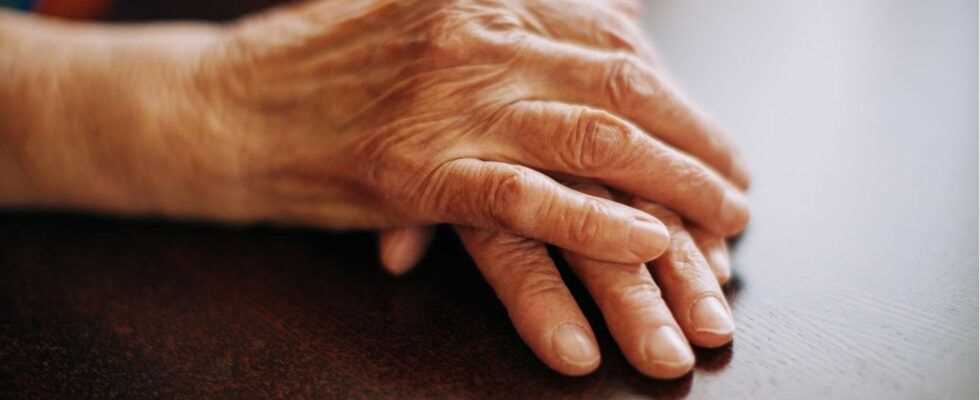Knowledge before death
Three things that the dying regrets most
Before death, people look back on their lives one more time.
© kuzmaphoto / Shutterstock
For years, Tenzin Kiyosaki has accompanied people in hospices on their last journey. In a new book, she describes the thoughts dying people have shortly before they die – and what that means for life.
When a person feels how death is getting closer and closer, when even a medical diagnosis gives him this security, then his life usually passes him by again. Many who are on the verge of dying worry about what lies behind them. Sometimes gratitude arises, maybe even joy about what you have experienced, but bitter feelings also arise: missed opportunities, serious mistakes, wrong decisions. That can no longer be changed.
Tenzin Kiyosaki knows many such people. In an interreligious hospice in Los Angeles, the former Buddhist nun accompanied them on their last journey, listened to them and offered consolation. It struck her that there are always the same things that the dying regret before they die. In her new book, she writes, according to the US portal “Today”, that three points are repeated particularly often.
Forgiveness becomes important just before death
First: “I did not fulfill my dreams.”
Many patients would have had big dreams in their lives, but they never came true: a trip around the world, a business idea to live abroad. At the end of life, they find that everyday duties have stifled these goals. Kiyosaki encourages her readers to become aware of their dreams and pursue them before it is too late.
Second, “I haven’t passed on my love.”
Many people are rarely able to show their affection for others properly. Shortly before they die, they realize that much has remained unsaid. “Find ways to say ‘I love you’ and express their love every day,” writes Kiyosaki.
Third, “I have not forgiven.”
Resentment accumulates over many years – whether justified or not – and leads to bitterness. From Kiyosaki’s point of view, this is the point that many patients regret most. When it comes to the end, many unresolved conflicts would come back to mind. A debate is then not always possible. The author Stefan Weiller, who accompanies terminally ill people for his books, made a similar observation. “Forgiveness is very important, from the outside and to yourself,” he said in the star-Interview. “It is important that you know how to forgive yourself and others before you die – and that at some point there is an understanding that the things in life are as they have developed.”
Kiyosaki gives the following tip: “Imagine you only had a year to live. Who would you call? What would you do or say to find peace? Do it now.”
Death can come at any time – not just for the elderly
Conclusions like these are the real reason Tenzin Kiyosaki wrote down her experiences and observations. She wants to create an awareness that people should not just grapple with their life and death shortly before death. After all, death is by no means something that only affects old people – younger people can also die suddenly or become seriously ill. Kiyosaki speaks from his own bitter experience: Her mother died at the age of only 49.
“Understanding that death can come at any time helps us see how valuable life is, how we can pursue our goals and dreams, and how we can get along well with one another,” she told Today. “We should now clean up the things we regret.”
Australian palliative nurse Bronnie Ware published a similar book in 2012. Also in “5 things that the dying regret most” it is about not having allowed feelings and having orientated oneself too much to the expectations of others and too little to one’s own dreams in one’s life. Ware also observed that many people wished they had worked less and cared for their friends more. In addition, many regretted not allowing themselves to be happier.
Source: “Today” / Bronnie Ware: “Regrets of the Dying”
This article originally appeared on stern.de.
